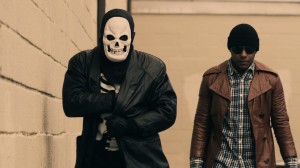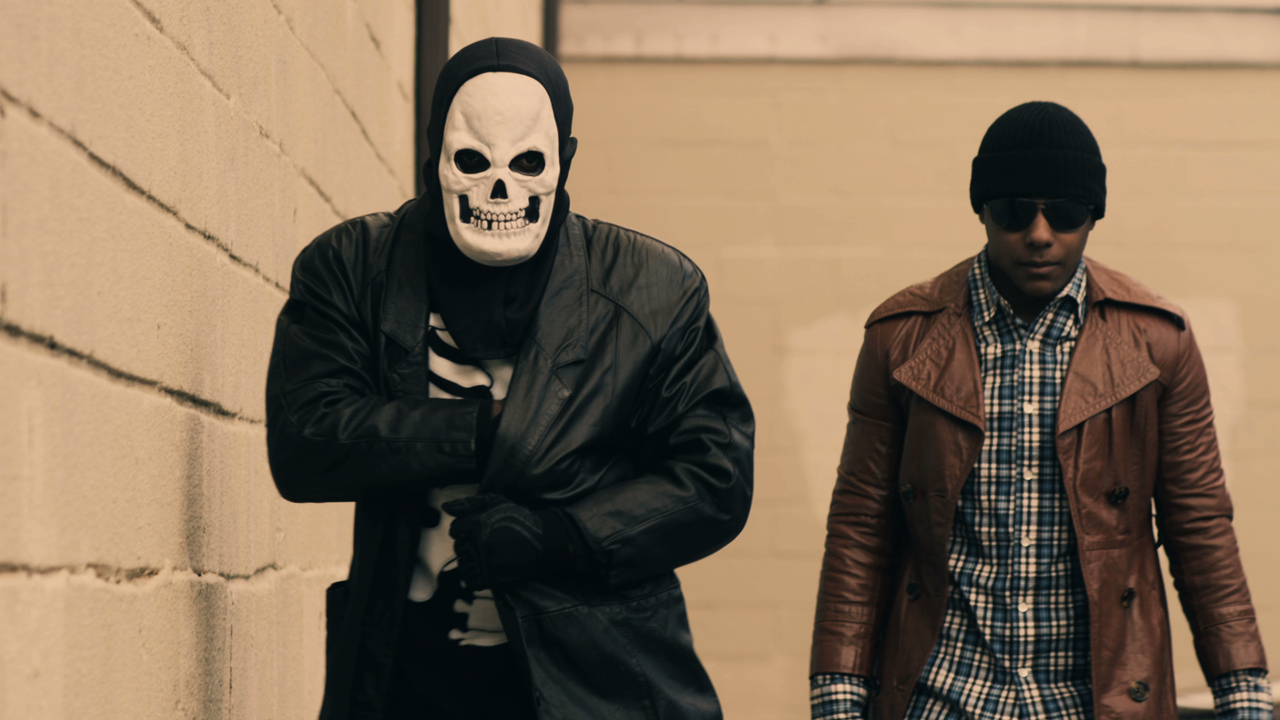Evolution proves there are always second chances
It is hard to choose which dream becoming a reality would be better — your first feature film or finally telling the world your story. For director Darius Clark Monroe, it is not a choice. His film, Evolution of a Criminal, is not only Monroe’s feature-length directorial debut, but also his chance to finally explain how — and why — he robbed a bank. The film premiered at SXSW in 2014 and was an official selection at the LA Film Festival this year. It went on to win the Grand Jury Prize and the Reva and David Logan Grand Jury Award at Full Frame, and the award for Best Documentary at Martha’s Vineyard African American Film Festival.
Evolution of a Criminal aims to explain the complexity and reality of life as a criminal. Monroe goes back to his hometown to interview his family, friends and victims of the robbery. Though we might expect a film whose director and subject are one and the same to be an attempt at justifying his actions, what we get is much more raw and honest. Monroe asks the questions, but he does no prompting. The movie is a mixture of interviews, narrations by Monroe and reenactments of the crime. It begins with a slow roll out of witnesses, then a reenactment of his arrest and works backward, working up to to his decision.
Monroe grew up in an extended family not only united by blood, but by poverty and strife. After his family was robbed, their suffering became crippling until Monroe decided to do something about it.
At the age of 16, he and two other companions, Trei and Pierre, decide to rob a branch of Bank of America. Monroe puts all of the money in a shoebox and gives it to his mother.
After the initial hysteria and shock from discovering her son had committed a crime, his mother uses the money to pay bills and take care of other family members. But eventually, the crime catches up to them and Monroe is tried as an adult and sentenced to five years in prison.
Evolution of a Criminal deals with hope in dark situations and second chances, but it is not naïve. Monroe includes an interview with the prosecutor of his case, who tells him she is still skeptical that he has truly changed, despite it having been over 15 years with no relapses. He also includes a scene where he attempts to talk with a victim of the robbery who refuses to accept his apology or forgive him.
In the Q&A following the screening Monroe mentions several others who would not even agree to be in his film. Monroe makes no attempt to hide his flaws. Instead, he embraces them, and ends the film with an interview with his uncle, who has also gone to jail. His uncle talks about how he wasn’t born to be a convict, but “he had a conviction.” Monroe’s uncle contends that if he had let himself stick with the mentality of being a convict, that’s all he ever could have been, but he chose instead to rise above it.
This message applies to no one better than the director himself. After being convicted, Monroe served his time and earned his G.E.D. in prison. He then went on to study film at NYU before producing several short films. But the movie shows far more than just Monroe’s personal evolution. From victims to family members, the film depicts the impact his actions had on others. It is not Monroe’s story as much as it is a story about growth and dynamics. His family is depicted as having loved, lost and yearned for him throughout his imprisonment. His victims are people who have gone through stages of acceptance, from anger and resentment to, sometimes, learning to forgive.
This movie stands out against other documentaries as it’s not just a fascinating story of a criminal with good intentions, but also the story of those he impacted and their evolution from anger and resentment to acceptance or, in the case of his family, from fear for his safety to joy at his return. It moves beyond a film that changes perspectives, and instead aims to challenge outlooks permanently.
Evolution of a Criminal is not a run-of-the-mill documentary on a world most rarely see. This documentary is about a world we all see every day and while the subject matter is more potent and new to most, it still boils down to the fact that destiny is made and second chances always exist for those who fight.

